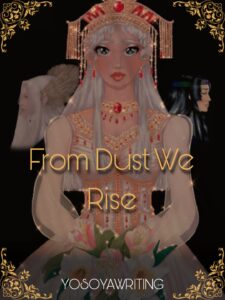Speaking of Puritanism in relation to American art, Mr. Gutzen Burglum said: “Puritanism has made us self-centered and hypocritical for so long, that sincerity and reverence for what is natural in our impulses have been fairly bred out of us, with the result that there can be neither truth nor individuality in our art.”
Mr. Burglum might have added that Puritanism has made life itself impossible. More than art, more than estheticism, life represents beauty in a thousand variations; it is, indeed, a gigantic panorama of eternal change. Puritanism, on the other hand, rests on a fixed and immovable conception of life; it is based on the Calvinistic idea that life is a curse, imposed upon man by the wrath of God. In order to redeem himself man must do constant penance, must repudiate every natural and healthy impulse, and turn his back on joy and beauty.
Puritanism celebrated its reign of terror in England during the sixteenth and seventeenth centuries, destroying and crushing every manifestation of art and culture. It was the spirit of Puritanism which robbed Shelley of his children, because he would not bow to the dicta of religion. It was the same narrow spirit which alienated Byron from his native land, because that great genius rebelled against the monotony, dullness, and pettiness of his country. It was Puritanism, too, that forced some of England’s freest women into the conventional lie of marriage: Mary Wollstonecraft and, later, George Eliot. And recently Puritanism has demanded another toll—the life of Oscar Wilde. In fact, Puritanism has never ceased to be the most pernicious factor in the domain of John Bull, acting as censor of the artistic expression of his people, and stamping its approval only on the dullness of middle-class respectability.
It is therefore sheer British jingoism which points to America as the country of Puritanic provincialism. It is quite true that our life is stunted by Puritanism, and that the latter is killing what is natural and healthy in our impulses. But it is equally true that it is to England that we are indebted for transplanting this spirit on American soil. It was bequeathed to us by the Pilgrim fathers. Fleeing from persecution and oppression, the Pilgrims of Mayflower fame established in the New World a reign of Puritanic tyranny and crime. The history of New England, and especially of Massachusetts, is full of the horrors that have turned life into gloom, joy into despair, naturalness into disease, honesty and truth into hideous lies and hypocrisies. The ducking-stool and whipping post, as well as numerous other devices of torture, were the favorite English methods for American purification.
Boston, the city of culture, has gone down in the annals of Puritanism as the “Bloody Town.” It rivaled Salem, even, in her cruel persecution of unauthorized religious opinions. On the now famous Common a half-naked woman, with a baby in her arms, was publicly whipped for the crime of free speech; and on the same spot Mary Dyer, another Quaker woman, was hanged in 1659. In fact, Boston has been the scene of more than one wanton crime committed by Puritanism. Salem, in the summer of 1692, killed eighteen people for witchcraft. Nor was Massachusetts alone in driving out the devil by fire and brimstone. As Canning justly said: “The Pilgrim fathers infested the New World to redress the balance of the Old.” The horrors of that period have found their most supreme expression in the American classic, THE SCARLET LETTER.
Puritanism no longer employs the thumbscrew and lash; but it still has a most pernicious hold on the minds and feelings of the American people. Naught else can explain the power of a Comstock. Like the Torquemadas of ante-bellum days, Anthony Comstock is the autocrat of American morals; he dictates the standards of good and evil, of purity and vice. Like a thief in the night he sneaks into the private lives of the people, into their most intimate relations. The system of espionage established by this man Comstock puts to shame the infamous Third Division of the Russian secret police. Why does the public tolerate such an outrage on its liberties? Simply because Comstock is but the loud expression of the Puritanism bred in the Anglo-Saxon blood, and from whose thraldom even liberals have not succeeded in fully emancipating themselves. The visionless and leaden elements of the old Young Men’s and Women’s Christian Temperance Unions, Purity Leagues, American Sabbath Unions, and the Prohibition Party, with Anthony Comstock as their patron saint, are the grave diggers of American art and culture.
Europe can at least boast of a bold art and literature which delve deeply into the social and sexual problems of our time, exercising a severe critique of all our shams. As with a surgeon’s knife every Puritanic carcass is dissected, and the way thus cleared for man’s liberation from the dead weights of the past. But with Puritanism as the constant check upon American life, neither truth nor sincerity is possible. Nothing but gloom and mediocrity to dictate human conduct, curtail natural expression, and stifle our best impulses. Puritanism in this the twentieth century is as much the enemy of freedom and beauty as it was when it landed on Plymouth Rock. It repudiates, as something vile and sinful, our deepest feelings; but being absolutely ignorant as to the real functions of human emotions, Puritanism is itself the creator of the most unspeakable vices.
The entire history of asceticism proves this to be only too true. The Church, as well as Puritanism, has fought the flesh as something evil; it had to be subdued and hidden at all cost. The result of this vicious attitude is only now beginning to be recognized by modern thinkers and educators. They realize that “nakedness has a hygienic value as well as a spiritual significance, far beyond its influences in allaying the natural inquisitiveness of the young or acting as a preventative of morbid emotion. It is an inspiration to adults who have long outgrown any youthful curiosities. The vision of the essential and eternal human form, the nearest thing to us in all the world, with its vigor and its beauty and its grace, is one of the prime tonics of life.”[1] But the spirit of purism has so perverted the human mind that it has lost the power to appreciate the beauty of nudity, forcing us to hide the natural form under the plea of chastity. Yet chastity itself is but an artificial imposition upon nature, expressive of a false shame of the human form. The modern idea of chastity, especially in reference to woman, its greatest victim, is but the sensuous exaggeration of our natural impulses. “Chastity varies with the amount of clothing,” and hence Christians and purists forever hasten to cover the “heathen” with tatters, and thus convert him to goodness and chastity.
Puritanism, with its perversion of the significance and functions of the human body, especially in regard to woman, has condemned her to celibacy, or to the indiscriminate breeding of a diseased race, or to prostitution. The enormity of this crime against humanity is apparent when we consider the results. Absolute sexual continence is imposed upon the unmarried woman, under pain of being considered immoral or fallen, with the result of producing neurasthenia, impotence, depression, and a great variety of nervous complaints involving diminished power of work, limited enjoyment of life, sleeplessness, and preoccupation with sexual desires and imaginings. The arbitrary and pernicious dictum of total continence probably also explains the mental inequality of the sexes. Thus Freud believes that the intellectual inferiority of so many women is due to the inhibition of thought imposed upon them for the purpose of sexual repression. Having thus suppressed the natural sex desires of the unmarried woman, Puritanism, on the other hand, blesses her married sister for incontinent fruitfulness in wedlock. Indeed, not merely blesses her, but forces the woman, oversexed by previous repression, to bear children, irrespective of weakened physical condition or economic inability to rear a large family. Prevention, even by scientifically determined safe methods, is absolutely prohibited; nay, the very mention of the subject is considered criminal.
Thanks to this Puritanic tyranny, the majority of women soon find themselves at the ebb of their physical resources. Ill and worn, they are utterly unable to give their children even elementary care. That, added to economic pressure, forces many women to risk utmost danger rather than continue to bring forth life. The custom of procuring abortions has reached such vast proportions in America as to be almost beyond belief. According to recent investigations along this line, seventeen abortions are committed in every hundred pregnancies. This fearful percentage represents only cases which come to the knowledge of physicians. Considering the secrecy in which this practice is necessarily shrouded, and the consequent professional inefficiency and neglect, Puritanism continuously exacts thousands of victims to its own stupidity and hypocrisy.
Prostitution, although hounded, imprisoned, and chained, is nevertheless the greatest triumph of Puritanism. It is its most cherished child, all hypocritical sanctimoniousness notwithstanding. The prostitute is the fury of our century, sweeping across the “civilized” countries like a hurricane, and leaving a trail of disease and disaster. The only remedy Puritanism offers for this ill-begotten child is greater repression and more merciless persecution. The latest outrage is represented by the Page Law, which imposes upon New York the terrible failure and crime of Europe; namely, registration and segregation of the unfortunate victims of Puritanism. In equally stupid manner purism seeks to check the terrible scourge of its own creation—venereal diseases. Most disheartening it is that this spirit of obtuse narrow-mindedness has poisoned even our so-called liberals, and has blinded them into joining the crusade against the very things born of the hypocrisy of Puritanism—prostitution and its results. In wilful blindness Puritanism refuses to see that the true method of prevention is the one which makes it clear to all that “venereal diseases are not a mysterious or terrible thing, the penalty of the sin of the flesh, a sort of shameful evil branded by purist malediction, but an ordinary disease which may be treated and cured.” By its methods of obscurity, disguise, and concealment, Puritanism has furnished favorable conditions for the growth and spread of these diseases. Its bigotry is again most strikingly demonstrated by the senseless attitude in regard to the great discovery of Prof. Ehrlich, hypocrisy veiling the important cure for syphilis with vague allusions to a remedy for “a certain poison.”
The almost limitless capacity of Puritanism for evil is due to its intrenchment behind the State and the law. Pretending to safeguard the people against “immorality,” it has impregnated the machinery of government and added to its usurpation of moral guardianship the legal censorship of our views, feelings, and even of our conduct.
Art, literature, the drama, the privacy of the mails, in fact, our most intimate tastes, are at the mercy of this inexorable tyrant. Anthony Comstock, or some other equally ignorant policeman, has been given power to desecrate genius, to soil and mutilate the sublimest creation of nature—the human form. Books dealing with the most vital issues of our lives, and seeking to shed light upon dangerously obscured problems, are legally treated as criminal offenses, and their helpless authors thrown into prison or driven to destruction and death.
Not even in the domain of the Tsar is personal liberty daily outraged to the extent it is in America, the stronghold of the Puritanic eunuchs. Here the only day of recreation left to the masses, Sunday, has been made hideous and utterly impossible. All writers on primitive customs and ancient civilization agree that the Sabbath was a day of festivities, free from care and duties, a day of general rejoicing and merry-making. In every European country this tradition continues to bring some relief from the humdrum and stupidity of our Christian era. Everywhere concert halls, theaters, museums, and gardens are filled with men, women, and children, particularly workers with their families, full of life and joy, forgetful of the ordinary rules and conventions of their every-day existence. It is on that day that the masses demonstrate what life might really mean in a sane society, with work stripped of its profit-making, soul-destroying purpose.
Puritanism has robbed the people even of that one day. Naturally, only the workers are affected: our millionaires have their luxurious homes and elaborate clubs. The poor, however, are condemned to the monotony and dullness of the American Sunday. The sociability and fun of European outdoor life is here exchanged for the gloom of the church, the stuffy, germ-saturated country parlor, or the brutalizing atmosphere of the back-room saloon. In Prohibition States the people lack even the latter, unless they can invest their meager earnings in quantities of adulterated liquor. As to Prohibition, every one knows what a farce it really is. Like all other achievements of Puritanism it, too, has but driven the “devil” deeper into the human system. Nowhere else does one meet so many drunkards as in our Prohibition towns. But so long as one can use scented candy to abate the foul breath of hypocrisy, Puritanism is triumphant. Ostensibly Prohibition is opposed to liquor for reasons of health and economy, but the very spirit of Prohibition being itself abnormal, it succeeds but in creating an abnormal life.
Every stimulus which quickens the imagination and raises the spirits, is as necessary to our life as air. It invigorates the body, and deepens our vision of human fellowship. Without stimuli, in one form or another, creative work is impossible, nor indeed the spirit of kindliness and generosity. The fact that some great geniuses have seen their reflection in the goblet too frequently, does not justify Puritanism in attempting to fetter the whole gamut of human emotions. A Byron and a Poe have stirred humanity deeper than all the Puritans can ever hope to do. The former have given to life meaning and color; the latter are turning red blood into water, beauty into ugliness, variety into uniformity and decay. Puritanism, in whatever expression, is a poisonous germ. On the surface everything may look strong and vigorous; yet the poison works its way persistently, until the entire fabric is doomed. With Hippolyte Taine, every truly free spirit has come to realize that “Puritanism is the death of culture, philosophy, humor, and good fellowship; its characteristics are dullness, monotony, and gloom.”
[1] THE PSYCHOLOGY OF SEX. Havelock Ellis.







The Indolence of the Filipino
Completed